Originally posted by Russia (DoE)
View Post
The stars are bright Catherine and can be dazzling deceptive. They look so close yet are so far away like the star of Bethlehem.
I am not Christian but will meet you personally in the deer forests where your Chariot is near Neandor City. I am going to this place now. I like the forests but these are not so cold as the ones of my armies. I need to understand the many faces of Christianity and therefore know the hearts and minds of my Christian people.
You speak of Franzen as a relation, which he is but the family trees of Neandor go deep into roots that I am aware of. Franzen is very distantly related to you via the Grunzen line of course. Franzen is half French since the last Grunzen had a child to a French (or Gaulic at the time) concubine. This was Franzen.
However other branches of the Grunzen line remained in the North and a distant relative went to moscow eons ago. He blended into high society in Russia and I believe he is more closely related to you than any other Neandertal.
This man is a direct paternal ancestor of mine.
Snarg II

 was shocked to discover the delta of a massive river. This river dwarfed the Thames, the Nile and any other river the explorers had yet encountered. It seemed, initially at least, that the river was in fact another sea or channel. It was here that Captain John Smith parted company with Hudson. Smith left with a ship to further explore the river, Hudson continued east and south to map out the rest of the South American coast.
was shocked to discover the delta of a massive river. This river dwarfed the Thames, the Nile and any other river the explorers had yet encountered. It seemed, initially at least, that the river was in fact another sea or channel. It was here that Captain John Smith parted company with Hudson. Smith left with a ship to further explore the river, Hudson continued east and south to map out the rest of the South American coast.  Travel was not difficult at first, the mighty river was several miles across in parts, they had little contact with the shore. Smith made many notes of the flora and fauna he saw in the water. Giant otters, viscous piranhas and huge manatees all were spotted and recorded by Smith's crew. All were shocked to discover the first known encounters with fresh water dolphins and sharks. They saw huge fish, 10 feet long, that made for great eating for the crew. The massive fish, dolphins and manatees were often mistaken for mermaids or other mythical creatures. It was all to strange and fantastic to believe. This wild world couldn't be more removed from the hedgerows and farms they all knew from back home. This was a wild land filled with monsters and mystery.
Travel was not difficult at first, the mighty river was several miles across in parts, they had little contact with the shore. Smith made many notes of the flora and fauna he saw in the water. Giant otters, viscous piranhas and huge manatees all were spotted and recorded by Smith's crew. All were shocked to discover the first known encounters with fresh water dolphins and sharks. They saw huge fish, 10 feet long, that made for great eating for the crew. The massive fish, dolphins and manatees were often mistaken for mermaids or other mythical creatures. It was all to strange and fantastic to believe. This wild world couldn't be more removed from the hedgerows and farms they all knew from back home. This was a wild land filled with monsters and mystery. For the first few months of the journey they stayed on the boats and interacted little with the land around them. They occasionally caught glimpses of natives, but gave them a wide berth. They appeared to be primitive, far more primitive than the Americans in the north or the Inca to the west. Exotic in dress and appearance, the savages wore feathers and little more than loin cloths to cover themselves. Smith made notes in his journal and continued writing down all that he saw and encountered.
For the first few months of the journey they stayed on the boats and interacted little with the land around them. They occasionally caught glimpses of natives, but gave them a wide berth. They appeared to be primitive, far more primitive than the Americans in the north or the Inca to the west. Exotic in dress and appearance, the savages wore feathers and little more than loin cloths to cover themselves. Smith made notes in his journal and continued writing down all that he saw and encountered.  It was then that they spotted their first native in days. A beautiful, nearly naked woman standing in the middle of the river, her arms outstretched. As they neared they began to hear the faint sound of singing. A lovely melody, it grew louder as they approached. The soft, sweet, alluring sound was irresistible. They couldn't help but sail closer and closer. Then, against all sense and the commands John Smith, some men jumped off the deck and started swimming to the tempting siren in the water. Having the willpower to resist the siren's call, John Smith and others in his party did their best to restrain and hold back the transfixed members of their crew. They did all they could, but despite their best efforts, a fifth of their crew dove off the ships and swam toward the sexy, half-naked native chick.
It was then that they spotted their first native in days. A beautiful, nearly naked woman standing in the middle of the river, her arms outstretched. As they neared they began to hear the faint sound of singing. A lovely melody, it grew louder as they approached. The soft, sweet, alluring sound was irresistible. They couldn't help but sail closer and closer. Then, against all sense and the commands John Smith, some men jumped off the deck and started swimming to the tempting siren in the water. Having the willpower to resist the siren's call, John Smith and others in his party did their best to restrain and hold back the transfixed members of their crew. They did all they could, but despite their best efforts, a fifth of their crew dove off the ships and swam toward the sexy, half-naked native chick. 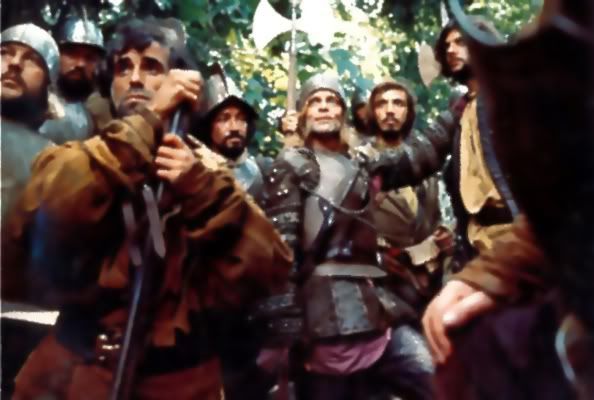
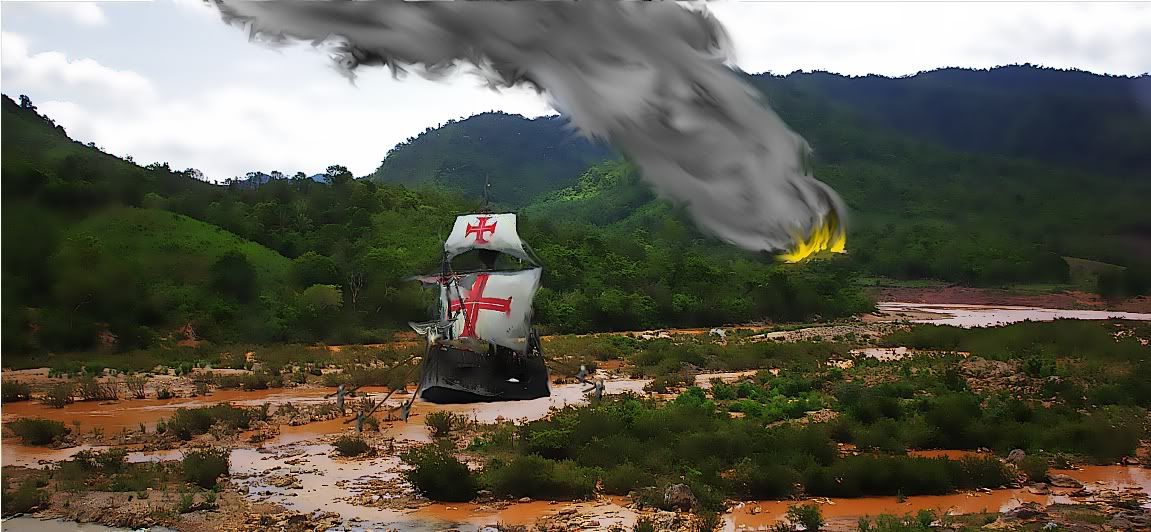
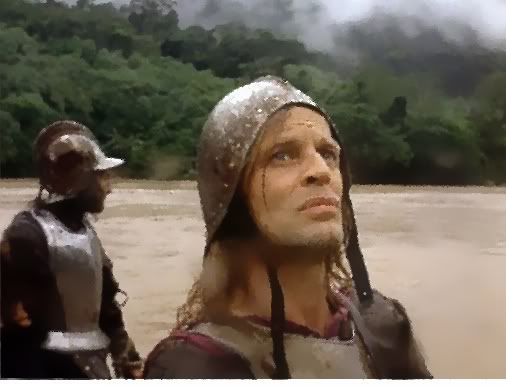
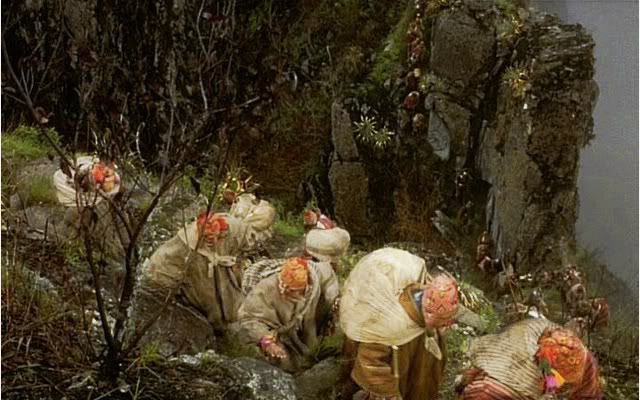
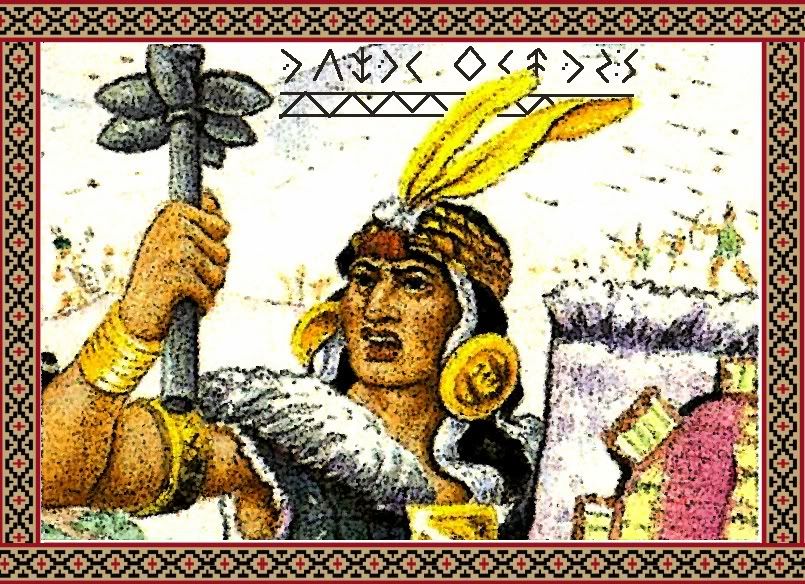
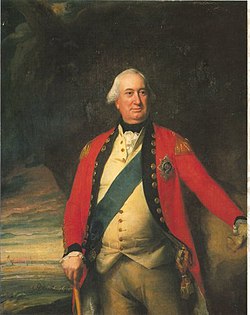
 Day 37
Day 37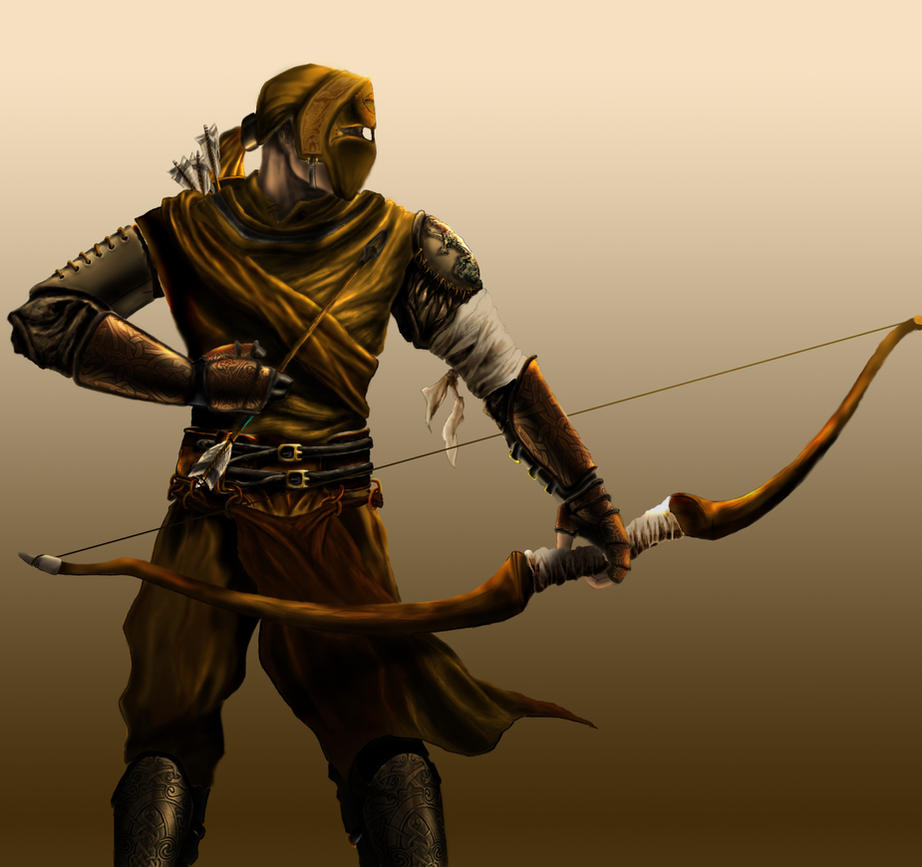
 The Inca were a strange people to be sure. Isolated away from all other civilizations, even the Aztec, yet intrepid enough to send explorers around the world. It is said that the Inca would travel 20,000 miles west to meet new civilizations instead of 5,000 miles north. Truly they are a strange and unpredictable people. It was into the depths of this land that Stanley would venture.
The Inca were a strange people to be sure. Isolated away from all other civilizations, even the Aztec, yet intrepid enough to send explorers around the world. It is said that the Inca would travel 20,000 miles west to meet new civilizations instead of 5,000 miles north. Truly they are a strange and unpredictable people. It was into the depths of this land that Stanley would venture.  The small procession soon headed south from Talcho, climbing the flanks of fantastic mountains, cutting past pale, blue-green glaciers, crossing through Inca cities and villages set besides rivers that sparkled in the sun, then traversing giant gorges on hanging Inca bridges while witnessing vast flocks of llamas and alpacas that seemed to extend for as far as the eye could see. Strangers in a strange land, these were (they thought) the first Europeans to witness an untouched Andean world never before seen, one with a thriving native civilization in all of its color and scarcely understood complexity. Everything was new—plants, animals, people, villages, mountains, herds, languages, and cities.
The small procession soon headed south from Talcho, climbing the flanks of fantastic mountains, cutting past pale, blue-green glaciers, crossing through Inca cities and villages set besides rivers that sparkled in the sun, then traversing giant gorges on hanging Inca bridges while witnessing vast flocks of llamas and alpacas that seemed to extend for as far as the eye could see. Strangers in a strange land, these were (they thought) the first Europeans to witness an untouched Andean world never before seen, one with a thriving native civilization in all of its color and scarcely understood complexity. Everything was new—plants, animals, people, villages, mountains, herds, languages, and cities. When the three travelers finally arrived in Capaco, after more than a month of being born ever southwards, they were stunned by what they beheld. Nestled on a broad valley between mountain and coast, the Incas’ golden capital appeared like some medieval town in the Swiss Alps, with smoke rising from the thatched roofs of its high-gabled houses and with green hillsides and snow-and-ice covered mountains rising in the distance. “This city is the greatest and finest that has ever been seen in this realm or even [elsewhere] in the Indies,” the English explorers later wrote the King. “And we can assure your Majesty that it is so beautiful and has such fine buildings that it would be very remarkable even in England.”
When the three travelers finally arrived in Capaco, after more than a month of being born ever southwards, they were stunned by what they beheld. Nestled on a broad valley between mountain and coast, the Incas’ golden capital appeared like some medieval town in the Swiss Alps, with smoke rising from the thatched roofs of its high-gabled houses and with green hillsides and snow-and-ice covered mountains rising in the distance. “This city is the greatest and finest that has ever been seen in this realm or even [elsewhere] in the Indies,” the English explorers later wrote the King. “And we can assure your Majesty that it is so beautiful and has such fine buildings that it would be very remarkable even in England.”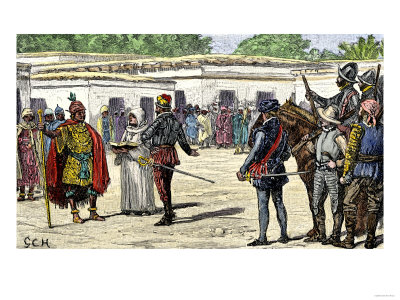 city; they are painted and carved and are made of stone. There are many other buildings and grandeurs."
city; they are painted and carved and are made of stone. There are many other buildings and grandeurs."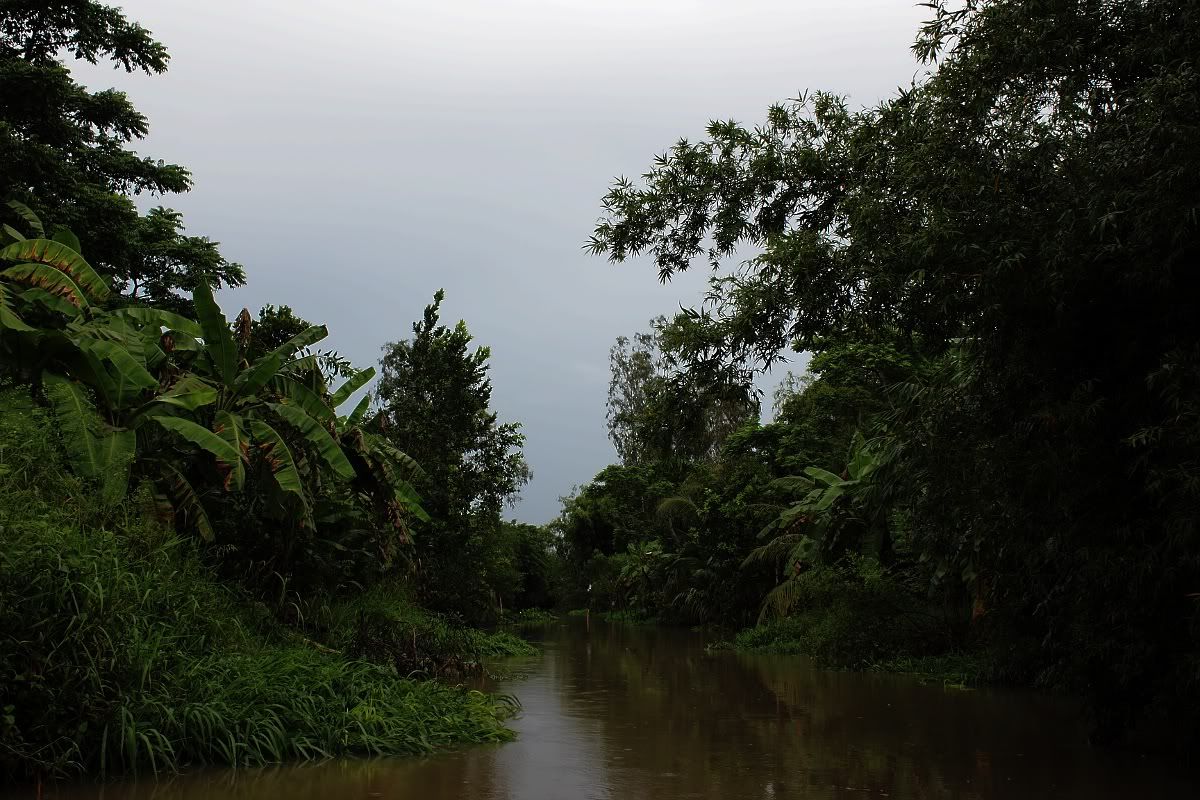
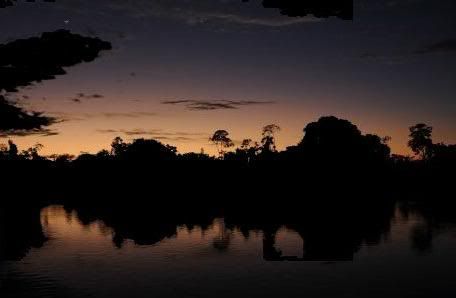
Comment